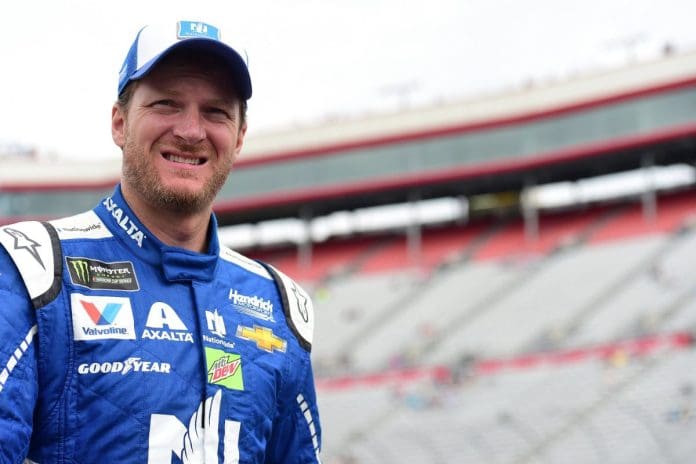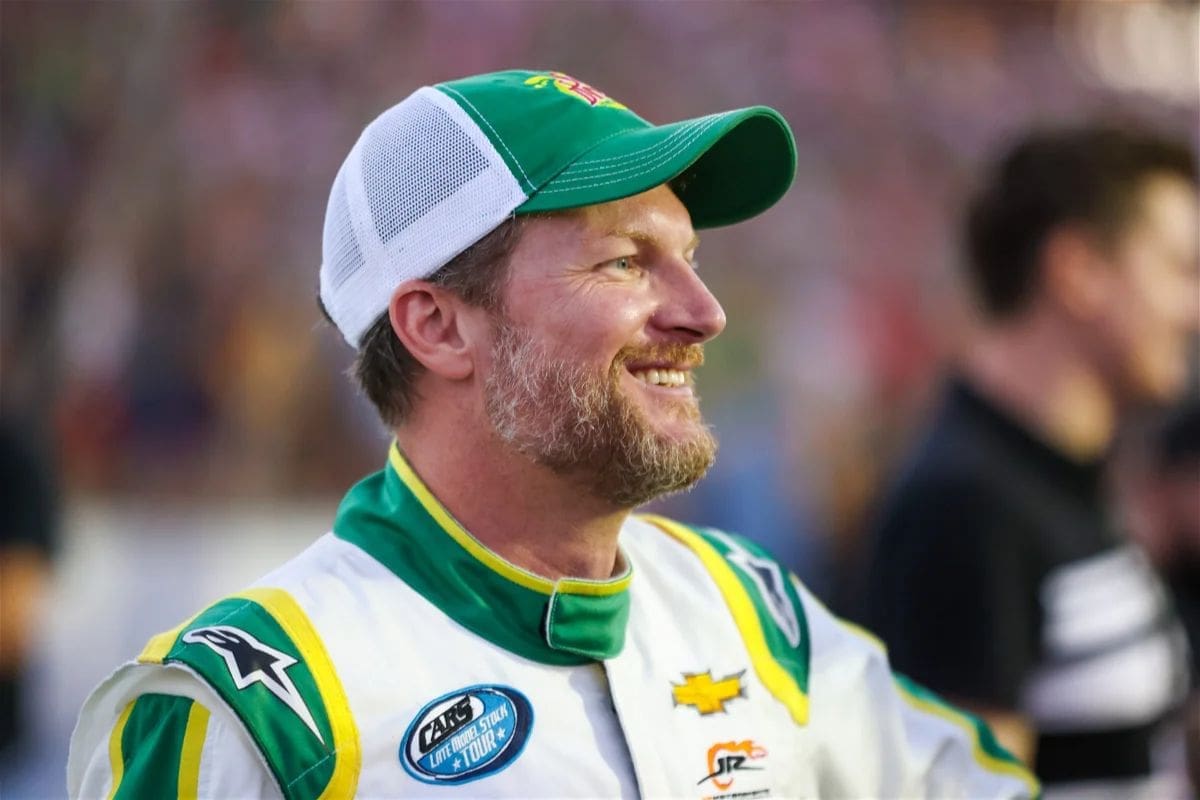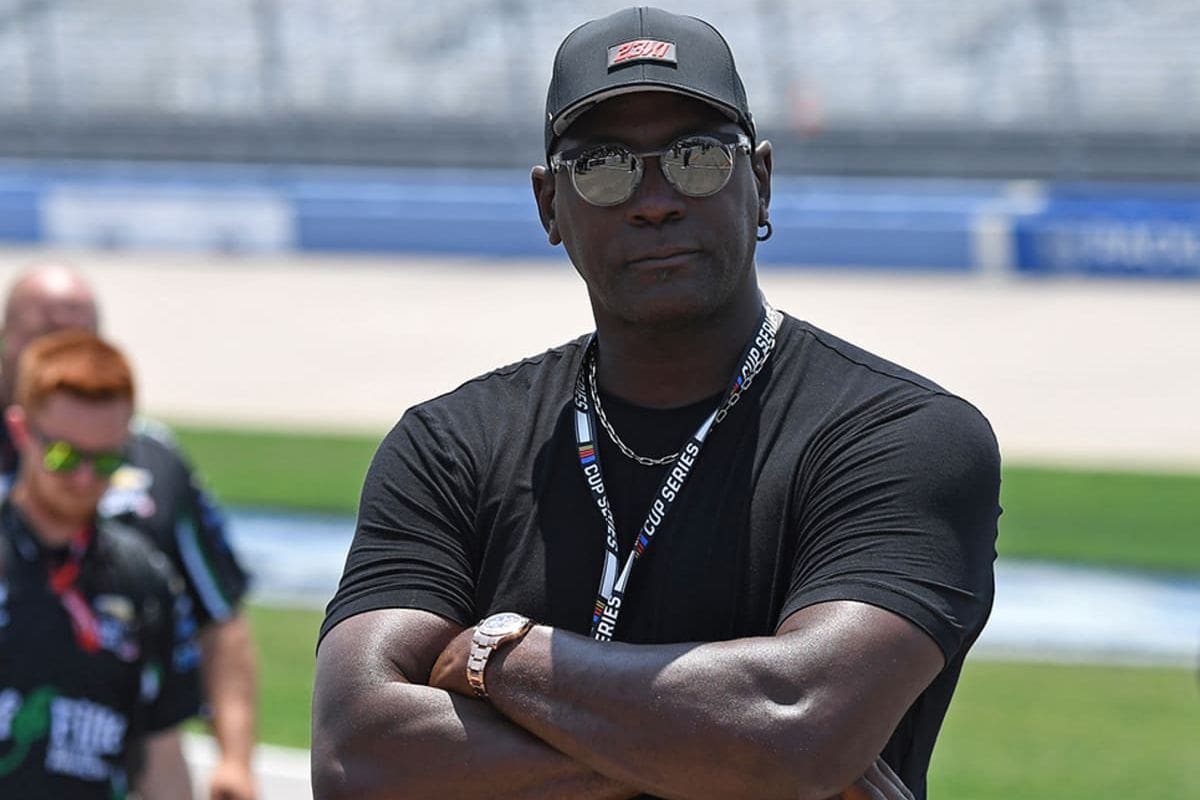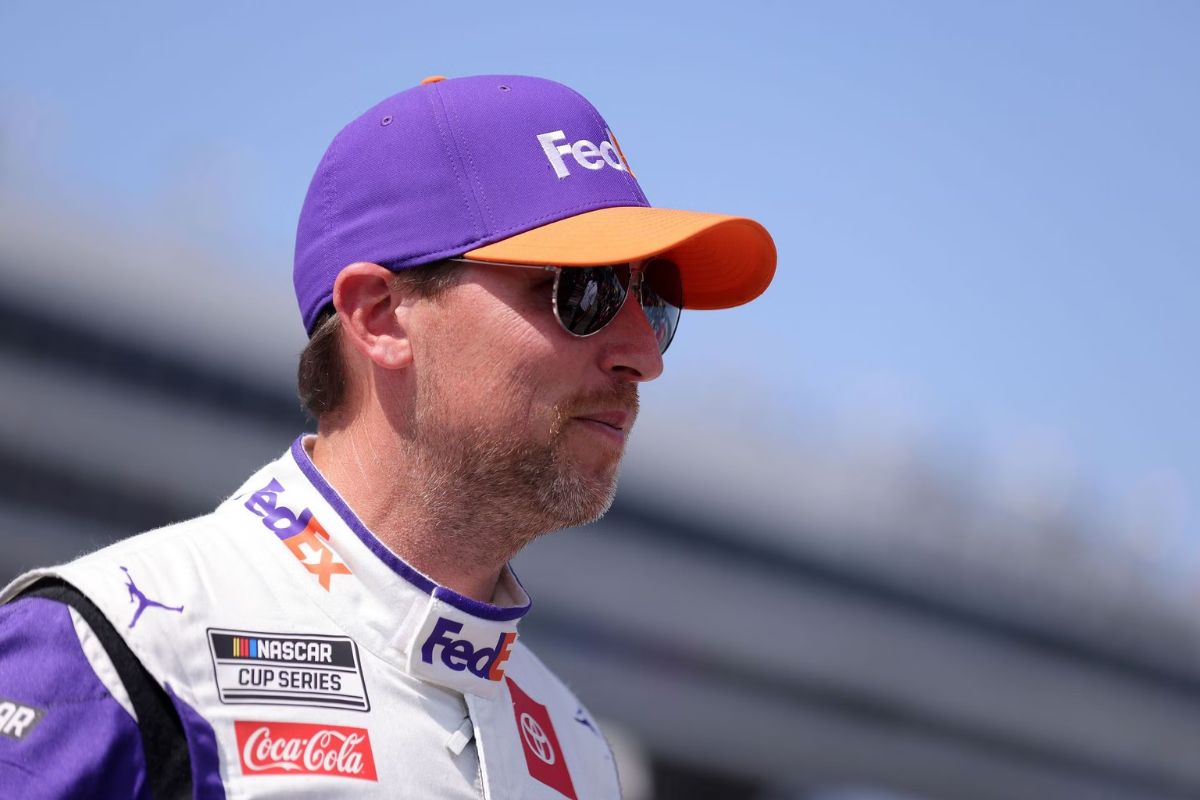Dale Earnhardt Jr. Slams Cup Teams: In a recent outburst that has stirred the NASCAR community, Dale Earnhardt Jr. expressed his discontent with the financial challenges plaguing Cup teams. His critique sheds light on the challenging economic hurdles faced by owners, maneuvering the high costs of operation amid fluctuating sponsorship revenues and competitive market dynamics. This situation raises critical questions about the sustainability of current business models within the sport and the potential need for significant financial reforms.
Key Takeaways
- Dale Earnhardt Jr. criticizes the financial model in NASCAR, highlighting unsustainable costs for teams.
- Earnhardt emphasizes the need for NASCAR to reform revenue distribution to aid team profitability.
- He points out that the high initial investment and operational costs deter new teams from entering the sport.
- Earnhardt advocates for a restructured charter agreement to ensure fair financial opportunities for all teams.
- His comments aim to influence NASCAR’s leadership and other influential teams to reconsider the economic strategies.
The Expensive Reality of NASCAR Ownership
The financial landscape of NASCAR ownership is challenging, with team owners often facing the formidable challenge of managing multimillion-dollar investments under uncertain conditions. A stark depiction of this is the hefty $40 million required for a charter, which provides the right to operate a team. Despite such a significant outlay, the duration for which a charter can be held is not guaranteed long-term, as it is subject to contract renewals dictated by NASCAR’s central administration.
Adding to the complexity, the operational costs of maintaining competitive race teams are enormous. These expenses range from salaries for drivers and pit crews, to advanced technological equipment and continuous vehicle enhancements. The economic model of NASCAR dictates that these investments are necessary to remain competitive on the track, where performance directly influences potential earnings from prize money and sponsorships.
However, the current charter system is a double-edged sword. While it superficially stabilizes the grid and gives teams a semblance of financial security through guaranteed participation, it also imposes a rigid structure that can stifle new investments and innovations. With the looming expiration of the current charter agreement, there is noticeable tension within the community. Team owners are pressed to renegotiate terms that could dictate their future viability, making strategic planning under such fluctuating conditions an even more challenging task.
Dale Earnhardt Jr.’s Perspective on Racing and Profitability
Addressing the economic challenges within NASCAR, Dale Earnhardt Jr. starkly highlighted the unlikelihood of profiting directly from racing, emphasizing a widespread financial reality faced by Cup teams. He painted a grim yet realistic picture of the financial landscape in professional racing, arguing that the business model of the sport inherently discourages direct profitability from racing operations alone.
Earnhardt Jr. drew upon his extensive racing career, spanning multiple levels from street stocks to the Xfinity Series, to underline his point. Despite his popularity and success, he openly shared that none of his racing ventures were directly profitable. This personal insight serves as a strong anecdote showing the broader economic challenges within NASCAR.
“You don’t make money racing anywhere. I would love to know where somebody is racing a race car and making money doing it.”
“That’s so foreign to me- like f*cking making money?” – dale jr.
Moreover, Dale Jr. expanded on the collective experience of Cup teams, noting a universal struggle to achieve profitability. His observations suggest a systemic issue where the revenue distribution structure within the sport benefits other stakeholders, such as tracks and NASCAR itself, more prominently than the teams. This imbalance raises questions about the sustainability and financial health of the teams that are integral to the sport’s ecosystem.
“I don’t know if it’s even realistic for the teams to think that they can even get profitable but maybe they could. I mean we break even here. I’m not saying we’re losing money we break even running in the Xfinity Series. So, I think breaking even and making money in the Cup series is realistic. But it just um I’ve always known and accepted that you know racing as an owner was a difficult thing financially.” – dale jr.
Michael Jordan and Curtis Polk’s Financial Bet on NASCAR
Despite facing potential financial headwinds, the NBA legend Michael Jordan and his business partner Curtis Polk ventured into NASCAR in 2020, aligning with Denny Hamlin to capitalize on the sport’s anticipated growth in viewership and attendance. This strategic move, though full of financial risks, was predicated on the belief that NASCAR was poised for a resurgence, potentially reinvigorating its once robust audience base.
The decision by Jordan and Polk to invest in NASCAR through the formation of 23XI Racing was supported by their foresight into the sport’s commercial potentials. They recognized early on that while immediate profits might not materialize, the long-term prospects could be lucrative if NASCAR managed to expand its appeal and successfully improve its viewer and attendance metrics. However, the reality of the business landscape in NASCAR has proven to be quite challenging. The major obstruction to profitability for new teams like 23XI Racing stems from the current revenue distribution model utilized by NASCAR, which they perceive as disproportionately favoring the governing body at the expense of the teams.
“If our ownership in NASCAR is losing money and NASCAR’s the only one making money, that’s not a good partnership.”-jordan
Denny Hamlin’s Warning to NASCAR
In his honest conversation with Dale Earnhardt Jr., Denny Hamlin voiced a firm warning about the financial sustainability challenges faced by NASCAR teams under the current charter system. Hamlin articulated concerns that, despite considerable revenues generated from recent TV deals, the economic model primarily benefits entities outside the circle of teams. He emphasized that the teams, integral to the sport’s operations and appeal, find themselves in financially precarious situations, urging a reassessment of the charter system to guarantee more equitable financial distribution.
Hamlin’s discussion extended to a forthright disclosure of potential repercussions if teams continue to perceive the charter system as disadvantageous. He highlighted the seriousness of the situation by suggesting that teams might opt out of participating in less profitable races, such as The Clash of the Coliseum and the All-Star Race, to mitigate financial losses.
“It would be ignorant of fans to say, ‘Well that’s great, no charters.‘ Well, then we just wouldn’t show up when we don’t need to. The Clash, we won’t show up at that, the All-Star Race, we wouldn’t show up at that. Maybe there are some races that pay less, we just won’t show up to those, it’s just not financially good.”- hamlin
Moreover, Hamlin’s call for a restructured charter agreement that includes permanent charters, improved financial support, and greater influence over NASCAR’s decision-making processes highlights a growing demand for a more collaborative and balanced business model. Teams are pushing for a stake in profits derived from new business initiatives, signaling a shift towards a more integrated approach where all stakeholders have a vested interest in the prosperity of the sport.
Potential Impact and Response
The possible rallying of industry giants such as Hendrick Motorsports and Joe Gibbs Racing behind Denny Hamlin’s stance could significantly enhance the call for financial reforms within NASCAR. These leading teams have substantial influence and resources, which can transform a personal grievance into a significant movement across the sport. Their potential endorsement of Hamlin’s concerns would not only heighten the issue’s visibility but might also prompt NASCAR’s administration to undertake serious financial structural changes.
The response from NASCAR will be vital in this scenario. Historically, the organization has evolved through a series of adaptations to both internal and external pressures. The involvement of top-tier teams in advocating for financial adjustments might prompt a more immediate and strategic reaction from NASCAR’s governing body. This could lead to a reevaluation of revenue distribution models and cost regulation mechanisms that currently govern the sport.
News in Brief: Dale Earnhardt Jr. Slams Cup Teams
The financial complexities of NASCAR ownership, as articulated by Dale Earnhardt Jr. and others, highlight the urgent need for reformative measures. Improved business strategies, thorough sponsorship acquisition, and optimized media rights management are crucial to address the economic challenges that reduce the sustainability of NASCAR teams. A strategic change could potentially stabilize and expand the sport’s economic foundation, ensuring long-term viability and success for team owners and stakeholders within the NASCAR industry.
Our Reader’s Queries
Q. How much money did Dale Earnhardt win?
A. During his driving career, Earnhardt participated in 676 Winston Cup races, clinching victory in 76 of them and earning over $40 million in prize money. Additionally, he boasted a stellar record in the International Race of Champions series, securing victory four times (in 1990, 1995, 1999, and 2000).
Q. Why was Dale Earnhardt so popular?
A. Kevin Harvick underscores Earnhardt’s profound impact on the sport, noting his influence both within NASCAR and beyond the track. Earnhardt’s larger-than-life persona and his endeavors off the track played pivotal roles in transforming NASCAR from a niche interest to a mainstream phenomenon.
ALSO READ: Dale Earnhardt Jr.’s HoF Outrage: Controversial Picks Revealed





